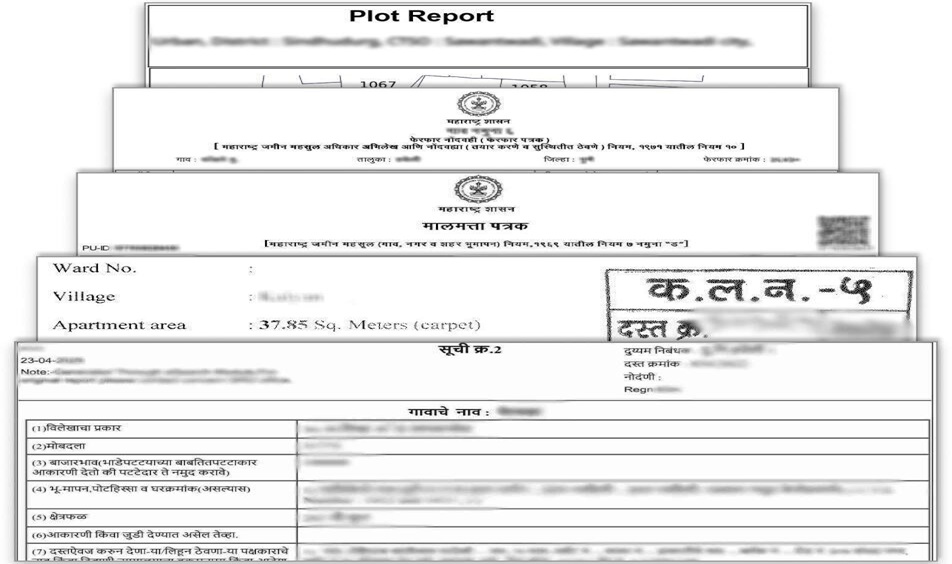Stamp duty and registration charges are critical components of any property transaction in Telangana. Understanding these costs can significantly affect the financial outcome of a property deal. Proper awareness helps potential buyers and sellers navigate the process smoothly, ensuring compliance with local regulations while avoiding unexpected expenses.
Current rates for stamp duty and registration fees vary based on the type of transaction and property location. The process of calculating these charges can seem complex, but with the right information, individuals can make informed decisions. It is essential to gather the necessary documents and understand the payment procedures to ensure a seamless registration process.
Being aware of the implications of not meeting these obligations can prevent legal complications and financial penalties. Familiarity with frequently asked questions about stamp duty can also enhance one’s understanding of the entire process.
Key Takeaways
- Stamp duty rates in Telangana are influenced by property type and location.
- Knowing the payment process and required documents streamlines property transactions.
- Non-payment can lead to legal challenges and additional costs.
Understanding Stamp Duty and Registration Charges
Stamp duty and registration charges play a critical role in property transactions in Telangana. These costs are essential for legal validation and financial responsibility when handling real estate transactions.
Definition of Stamp Duty
Stamp duty is a tax imposed by the government on the transfer of property ownership. In Telangana, this tax is calculated as a percentage of the property’s market value or the transaction value, whichever is higher.
For example, the current rate for sale deeds in urban areas is 4%, while rural areas may see rates around 5.5% depending on the circumstances outlined by the government.
The revenue generated from stamp duty contributes to state finances and is used for various public services. Buyers should be aware of these costs early in the purchasing process, as they directly impact the total cost of acquiring property.
Purpose of Registration Charges
Registration charges apply to the formal registration of property documents with the local sub-registrar. These charges ensure that the transaction is legally recognized and protected under the law. In Telangana, the registration fee is typically set at 2% of the property’s value.
This process not only provides legal proof of ownership but also prevents fraud and disputes regarding property transactions. It establishes a public record of ownership, which is crucial for future transactions, inheritance, and secure financing options.
Knowing the registration costs involved helps buyers budget effectively and ensures compliance with legal obligations.
Legal Framework Governing Duties
The legal structure governing stamp duty and registration charges in Telangana includes various acts and government orders. The primary legislation is the Indian Stamp Act of 1899, which outlines the types of documents subject to stamp duty.
Additionally, the Telangana State Registration Act of 1908 regulates the process of document registration. Recent government orders have updated rates and procedures to keep pace with changing market conditions.
These laws provide a framework ensuring transparency and fairness in property transactions. Buyers are encouraged to familiarize themselves with these regulations, as non-compliance can lead to significant penalties or disputes.
Current Rates and Calculations
Understanding the current rates for stamp duty and registration charges in Telangana is essential for anyone involved in property transactions. Accurate calculations ensure compliance and prevent unexpected expenses during the registration process.
Stamp Duty Rates in Telangana
Stamp duty is a mandatory charge imposed when property ownership is transferred. In Telangana, the rates vary depending on property type and location. The typical stamp duty rates are as follows:
Property Type | Stamp Duty Rate |
Sale Deed (Urban Areas) | 7.0% |
Sale Deed (Rural Areas) | 5.5% |
Gift Deed | 5.0% |
Lease Deed | 0.5% |
It is crucial to consult the Ready Reckoner for the most accurate rates, as these can change based on government notifications. Additionally, concession on stamp duty may be available for women buyers, reducing rates further.
Registration Charges Structure
Registration charges are separate from stamp duty and are typically calculated as a percentage of the property value. In Telangana, the charges generally follow this structure:
- Minimum Registration Fee: Rs. 1,000
- Registration Fee for Sale Deeds: 2.0% of the property value
- Additional Charges for Specific Property Types (like mortgages) may apply.
For more specific calculations, users can use the Registration Charges Calculator. This tool helps individuals get a precise estimate of the registration fees based on their transaction specifics.
Calculating Your Payable Amount
To determine the total payable amount for a property transaction, both stamp duty and registration charges must be accounted for. The formula is straightforward:
Total Payable Amount = (Property Value × Stamp Duty Rate) + Registration Charges
For example, if a property is valued at Rs. 50,00,000 in an urban area, the calculations would be:
- Stamp Duty: Rs. 50,00,000 × 7.0% = Rs. 3,50,000
- Registration Fees: Rs. 50,00,000 × 2.0% = Rs. 1,00,000
- Total Payable Amount: Rs. 3,50,000 + Rs. 1,00,000 = Rs. 4,50,000
Utilizing the Duty Fee Calculator can streamline this process, allowing individuals to quickly assess their financial obligations.
Payment Process and Required Documents
Understanding the payment process and required documents for stamp duty and registration is crucial for a smooth property transaction in Telangana. This section outlines the necessary steps and documents involved.
Steps for Payment
The payment of stamp duty and registration fees involves several key steps. First, individuals need to prepare the necessary documents for registration.
- Calculate Fees: Utilize the official Ready Reckoner to determine stamp duty, transfer duty, and registration fees based on property value.
- Online Payment: Payments can be made through the Telangana Registration website. Users must access the Property Registration portal, log in, and complete the payment process.
- Obtain Receipt: After payment, a receipt is generated. This document is essential for further processing at the Sub-Registrar Office.
This method ensures a hassle-free transaction, facilitating the subsequent steps in property registration.
Document Checklist
A precise set of documents is required to complete the registration process. The following checklist ensures that all necessary documentation is prepared:
- Identity Proof: Aadhaar card, voter ID, or passport.
- Address Proof: Utility bills or rental agreements.
- Property Documents: Sale deed, title deed, and encumbrance certificate.
- No Objection Certificates (NOCs): If applicable, from various authorities.
- Payment Receipts: For stamp duty and registration fees.
Ensuring all documents are ready minimizes delays during registration.
E-stamping and Online Procedures
E-stamping has simplified the payment of stamp duty in Telangana. This process allows individuals to pay their stamp duty online, leading to increased convenience.
- Access Portal: Users should visit the Telangana Registration portal.
- Complete Forms: Fill in the required forms for e-stamping.
- Payment Confirmation: Once payment is made, users receive an e-stamp certificate which serves as proof of payment.
This online approach streamlines the registration process and increases efficiency, allowing for easier tracking and management of documents.
Implications of Non-Payment
Failure to pay stamp duty and registration charges can lead to serious consequences. These implications affect both legal standing and the ability to conduct property transactions. Understanding these aspects is crucial for property buyers and sellers.
Penalties and Legal Consequences
When stamp duty is not paid, significant penalties can arise. Authorities may impose fines that are a percentage of the unpaid duty. In Telangana, the penalty can be up to 10% for late payment. Additionally, the document may be classified as invalid, affecting any legal agreements tied to the property.
Legal ramifications include possible court actions. An unpaid stamp duty can lead to disputes where the document could be impounded by public offices. This includes implications under the Indian Stamp Act, 1899, which grants such power to courts.
Impact on Property Transactions
Non-payment of stamp duty can jeopardize the validity of property transactions. Without proper registration, a sale deed lacks legal standing, making it unenforceable in a court of law. Buyers and sellers risk losing their investments if issues arise due to missing or incomplete documentation.
Moreover, future purchasers could face complications verifying property ownership. This situation makes it vital for parties involved to ensure all duties are paid before finalizing transactions. Failure to address this can lead to prolonged legal battles and financial loss.


